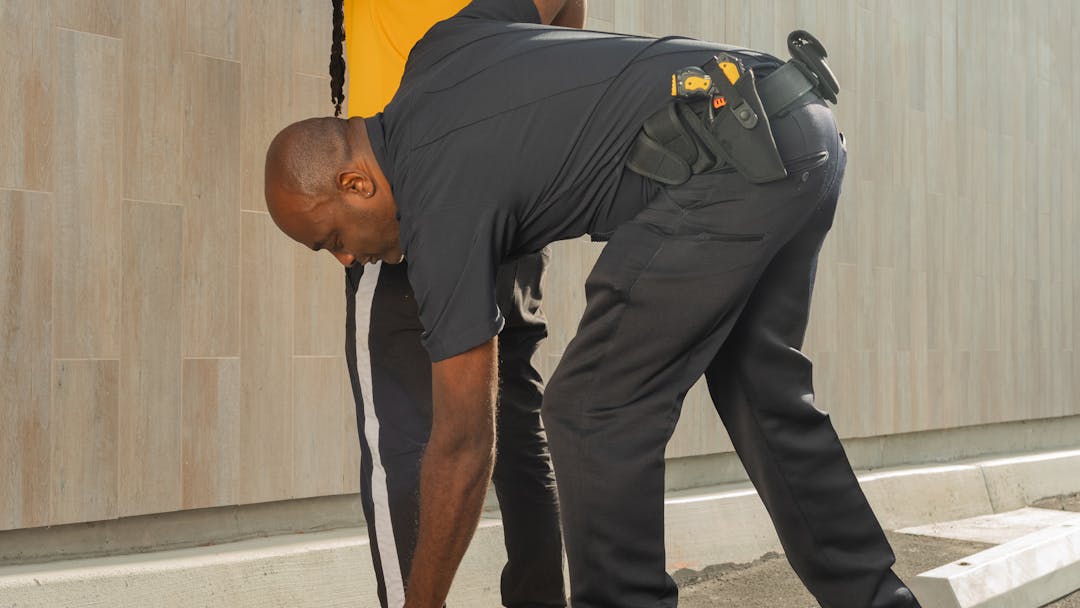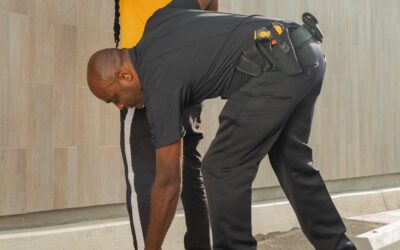Kentucky State Police officers searched Edward Lewis’s laptop, cell phone, and thumb drive and found evidence of child pornography. Lewis moved to suppress the evidence, arguing that it was obtained through an unlawful search and seizure of his electronic devices
United States 6th Circuit Court of Appeals
Districts Covered:
- Eastern District of Kentucky
- Western District of Kentucky
- Eastern District of Michigan
- Western District of Michigan
- Northern District of Ohio
- Southern District of Ohio
- Eastern District of Tennessee
- Middle District of Tennessee
- Western District of Tennessee
Case: United States v. Lewis
e-Journal #: 80155
Court: U.S. Court of Appeals Sixth Circuit ( Published Opinion )
Judges: Moore, Clay, and Gibbons
Concerns:
Search & seizure; Motion to suppress evidence; Validity of a search warrant; “Probable cause”; Applicability of the good-faith exception to the exclusionary rule; United States v Leon; Whether reliance on the search warrant was reasonable; A “bare bones” affidavit; United States v Weaver; United States v White; Nathanson v United States; Aguilar v Texas;
Exceptions to the warrant requirement; Consent; Applicability of the plain-view doctrine; Forfeiture
Summary:
The court held that some of the evidence taken from defendant-Lewis’s electronic devices “was obtained through searches and seizures that were not supported by a valid warrant or a valid claim to an exception to the warrant requirement.”
Thus, it reversed the order denying his motion to suppress, vacated his conviction, and remanded. After his motion was denied, he signed a conditional plea agreement pursuant to which he pled guilty to producing child pornography “but retained his right to appeal the district court’s suppression order and to withdraw his plea if he prevailed on that appeal.”
On appeal, the government did not dispute that the affidavit in support of the search warrant (made by a detective, G) did not establish probable cause, and the court held that it “violated the Fourth Amendment’s probable-cause requirement.”
The district court found the good-faith exception to the exclusionary rule applied. The issue here was “whether law-enforcement officers reasonably relied on the search warrant.” The court concluded they did not because G’s affidavit “was a bare-bones affidavit.”
The court found that, viewing it “under the totality of the circumstances, ‘the combined boilerplate language and minimal . . . information provide few, if any, particularized facts of an incriminating nature and little more than conclusory statements of affiant’s belief that probable cause existed regarding criminal activity.’”
It determined that in “omitting the essential facts of his investigation and communicating only his bottom-line conclusion, [G] asked the magistrate to find probable cause based solely on his say-so.
‘No reasonable officer could have believed’ under those circumstances ‘that the affidavit was not so lacking in indicia of probable cause as to be reliable.’” The court found that the “affidavit here much more closely resembles the bare-bones affidavits in Nathansonand Aguilar than the affidavit in White.”
It rejected the government’s suggestion “that ‘reasonable inferences’” could rescue the affidavit. The court held that applying the good-faith exception under the circumstances here “would be inappropriate.”
As to the government’s reliance on the consent exception to the warrant requirement, the “district court did not clearly err in finding that [G] and the other law-enforcement officers exceeded the scope of Lewis’s consent when they seized his electronic devices and forensically examined them.” And the government forfeited its plain-view argument and did not show plain error.
FAQ for United States v. Lewis
Q: What is United States v. Lewis?
A: United States v. Lewis is a 2023 case decided by the United States Court of Appeals for the Sixth Circuit. The case involved a defendant who was convicted of producing child pornography. The defendant argued that the evidence obtained from his laptop and cell phone should have been suppressed because the search warrant was invalid.
Q: What was the outcome of the case?
A: The Sixth Circuit vacated the defendant’s conviction and ordered a new trial. The court found that the search warrant was invalid because it did not establish probable cause. However, the court also found that the officers had acted in good faith in reliance on the warrant, so the evidence would not be suppressed.
Q: What is the significance of the case?
A: The case is significant because it reaffirms the importance of probable cause in search and seizure cases. The court also held that even if a search warrant is invalid, the evidence obtained may not be suppressed if the officers acted in good faith in reliance on the warrant.
Q: What are the implications of the case for law enforcement?
A: The case reminds law enforcement that they must have probable cause before obtaining a search warrant. The case also highlights the importance of acting in good faith when executing a search warrant.
Q: What are the implications of the case for defendants?
A: The case is a reminder to defendants that they have the right to challenge the validity of a search warrant. If a defendant believes that a search warrant is invalid, they should file a motion to suppress the evidence obtained from the search.
OTHER FAQ
Q: What is the difference between probable cause and reasonable suspicion?
A: Probable cause is a higher standard than reasonable suspicion. Probable cause is required to obtain a search warrant, while reasonable suspicion is required to conduct a Terry stop.
Q: What is a Terry stop?
A: A Terry stop is a brief detention of a person by law enforcement based on reasonable suspicion that the person is involved in criminal activity.
Q: What is a motion to suppress?
A: A motion to suppress is a motion that a defendant can file to ask the court to exclude evidence from trial. A defendant may file a motion to suppress if they believe that the evidence was obtained in violation of their constitutional rights.
Q: What happens if a defendant’s motion to suppress is granted?
A: If a defendant’s motion to suppress is granted, the court will exclude the evidence from trial. This means that the government will not be able to use the evidence to prove its case against the defendant.
Q: What happens if a defendant’s motion to suppress is denied?
A: If a defendant’s motion to suppress is denied, the government will be able to use the evidence against the defendant at trial. However, the defendant may still be able to challenge the evidence at trial on other grounds, such as relevance or hearsay.
More Posts

New rule mandates time and a half pay for lower paid employees
Qualified lower-paid workers who earn a salary but work more than 40 hours in a week will soon be entitled to guaranteed time-and-a-half pay, thanks to a new labor rule announced by the Biden-Harris administration. This rule will raise the salary thresholds necessary...

Whitmer Signs Bills for Health Services and Criminal Justice
LANSING, Mich. – Today, Governor Gretchen Whitmer signed legislation that aims to establish a licensure framework for dietitian nutritionists. The governor also signed legislation that delivers ongoing funding for trial courts across the state, reducing costs for...

People v Williams Michigan COA – Police CPL Check
People v WilliamsMichigan Court of AppealsNo 365299 (04/18/24) MCL 28.425f permits a police officer to ask a person observed to be carrying a concealed weapon to produce their concealed pistol license (CPL) at any time and for any reason. Makes possession of a...

Underage Workers in Factories Spark Fines, Investigations, and Legislation
A New York Times report exposed widespread child labor in a Michigan factory, prompting state and federal authorities to take action. The report focused on a Hearthside Food Solutions plant in Kentwood, alleging the presence of numerous underage workers. Michigan's...

Understanding Domestic Violence Laws in Michigan
Understanding Domestic Violence Laws in MichiganDomestic violence is a serious issue that can affect anyone, regardless of age, income, or background. If you are experiencing domestic violence in Michigan, it's important to know your rights and the laws that protect...

Macomb Prosecutor issues first charges under new safe storage law
Understanding Domestic Violence Laws in MichiganMacomb County Prosecutor Peter Lucido has filed the first charges under Michigan's new safe storage law following a critical accident in Warren. An 8-year-old boy allegedly accessed an unsecured firearm and shot himself...

Marijuana grow busted as feds investigate trend in more states
The DEA is investigating international criminal organizations that are operating illegal marijuana grows in about 20 states, including Maine.The significant electricity usage in a residence, its windows concealed with cardboard, and the scent of marijuana caught the...

A visit with a kick
POW - Right in the Kisser. Businesses watch out for the lawA Pennsylvania-based convenience store chain was hit with a lawsuit by the Biden administration at the same time the president stopped by one of their locations on the campaign trail. Sheetz is being accused...

Woman tried to board flight with 56 pounds of marijuana
Woman allowed airport police to check her luggage, had name tag on bags, according to reportsBefore a 21-year-old Memphis woman could board an United Airlines flight, Memphis International Airport Police found 56 pounds of marijuana in her luggage, according to...

You’re too stupid to store a gun properly
The Biden administration once again defends a ban in federal court, arguing that people who use marijuana should be prohibited from purchasing or possessing firearms. They claim that this restriction is supported by historical precedent and that individuals who...









